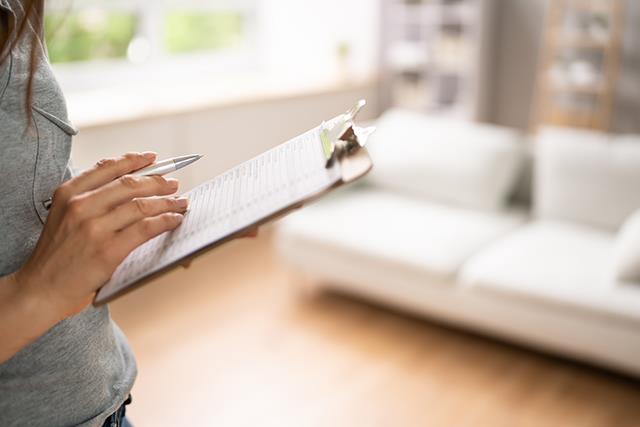When referring to the Rental Housing Act, it is stated that a tenant and landlord are required, under the Act, to conduct a joint ingoing and joint outgoing inspection. This is to determine any defects that may need to be recorded in terms of the Lease Agreement during the lease period.

Jacqui Savage, National Rentals Manager for the Rawson Property Group, they always emphasize the importance of an interim inspection to ensure that our landlord's investment is adequately looked after at all times during the tenancy.
Why is an interim inspection important?
An interim inspection is recommended for lease terms that are 12 months or more as agreed to by all parties and would more than likely take place in the middle of the tenancy. This inspection will help the Landlord, or their appointed agent, determine any defects that may need to be addressed before the end of the lease term. For example, there may be a rusted tap due to fair wear and tear, that if left for a period of time, could cause a larger issue. If this is picked up during an interim inspection, this can be attended to quickly.
The main issues we look at in our interim inspections are to see if there are any issues with the internal walls and doors, garden maintenance, mildew in the bathroom ceilings and then, of course, the general condition of the cupboards, taps, carpets, tiles etc. It is important to note these so that we can then, at that time, address the issues and request that the Tenant does the repairs immediately and at their own cost. If these repairs or required maintenance is not done, we can then place the Tenant in breach to ensure that it is corrected as per the Lease Agreement.
If there is any “fair wear and tear” that is picked up by the Landlord, or their appointed agent, in the Interim Inspection, it is important that the Landlord also does these repairs to avoid this becoming a larger issue, which could increase the cost of damages in the future.
We are often asked why an interim inspection is important if there is a damages deposit in place?
Unfortunately, in a lot of instances, there is not enough money in the damages deposit to cover all the repairs or maintenance at the end of the Lease period. By ensuring that you have an Interim Inspection done, you are reducing the financial strain on the deposit and ensuring there will be enough money to cover all damages and possibly even outstanding utilities or rental amounts.
Additional information:
According to the Department of Human Settlements, a Rental Housing Tribunal has the authority to deal with disputes, complaints or problems between tenants and landlords in the rental housing dwellings:
- Non-payment of rentals
- Failure to refund the deposit
- Invasion of tenant’s privacy, including family members and visitors
- Unlawful seizure of tenant’s goods
- Discrimination by landlord against prospective tenants
- The changing of locks
- Lack of maintenance and repairs
- Illegal evictions
- Illegal lockout or illegal disconnection of services
- Damage to property
- Demolition and conversion
- Forced entry
- House rules
- Intimidation
- Issuing of receipts
- Municipal services
- Nuisance
- Overcrowding and health matters
In terms of section 13(13) of the Rental Housing Act 50 of 1999, a ruling of the Tribunal is deemed to be an order of a Magistrate's Court in terms of the Magistrate's Court Act, 1994.
Want all the latest property news and curated hot property listings sent directly to your inbox? Register for Property24’s Hot Properties, Lifestyle and Weekly Property Trends newsletters or follow us on Twitter, Instagram or Facebook.








